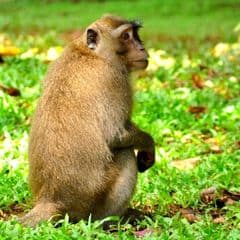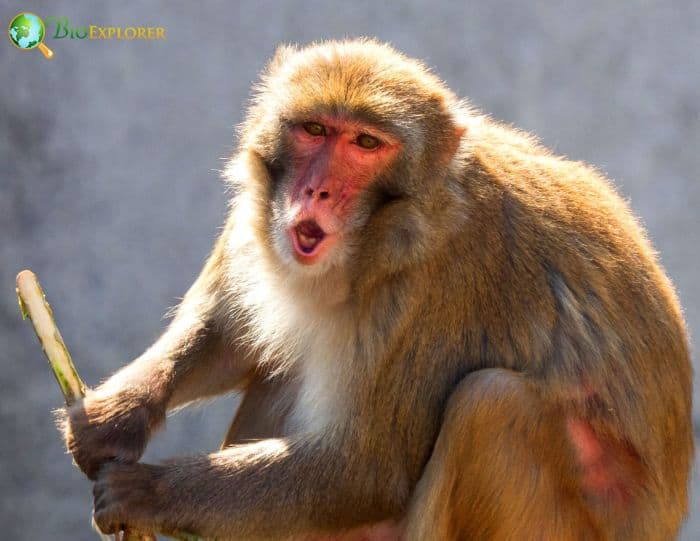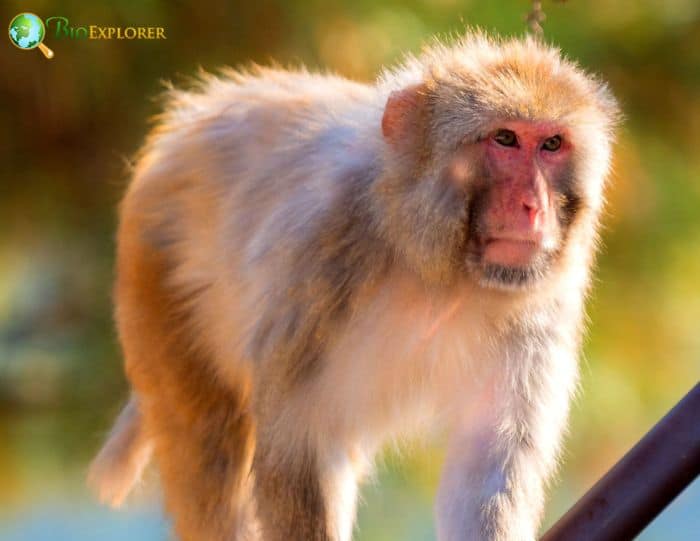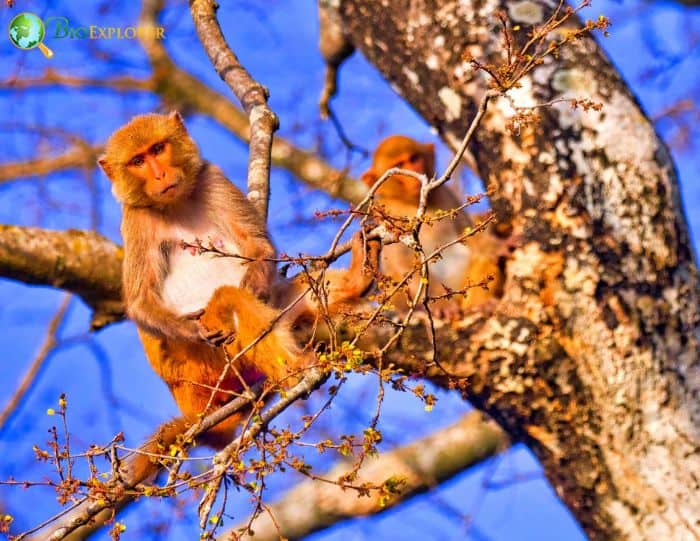Rhesus Macaque

| Kingdom | Order | Family | Genus | Species |
|---|---|---|---|---|
| Animalia | Primates | Cercopithecidae | Macaca | Macaca mulatta |


- Common Name: Rhesus Macaque
- Taxonomy Classification Year: 1780
- Monkey Size: 45 to 64 cm (17.72 to 25.20 in)
- Skin Color(s): Brown or grey
- Habitat: Desert or dune, savanna or grassland, forest, mountains
- Diet: Omnivorous
- Native Countries: India, Bangladesh, Pakistan, Nepal, Myanmar, Thailand, Afghanistan, Vietnam, China
Rhesus Macaque Distribution
Rhesus Macaque Characteristics

The rhesus macaque[1] (Macaca mulatta), commonly known as the rhesus monkey, is a species of Old-World monkey.
- There are about 6 to 9 recognized subspecies, divided into two groups, those native to China and those native to India.
- The rhesus monkey is brown or gray in color and has a pink face with no fur. It has an average of 50 vertebrae and a large thorax.
- Its tail averages between 20.7 and 22.9 cm (8.1 and 9.0 in). Adult males average about 53 cm (21 in) and weigh about 7.7 kg (17 lb).
- Females are smaller, averaging 19 inches (47 cm) long and weighing 12 pounds (5.3 kg).
- The arm length to leg length ratio is 89.6 to 94.3%.
What Eats Rhesus Macaques?
Rhesus Macaque Facts

- Rhesus monkeys are diurnal animals, both arboreal and terrestrial.
- They are quadrupedal, and when they are on the ground, they are digitigrade and plantigrade.
- Rhesus monkeys are very active and very vocal. They like to be in the water and are good swimmers.
- They have the widest geographic range of any non-human primate, occupying a wide variety of altitudes and habitats, from grasslands to arid, forested areas and close to human settlements.
- Like other macaques, the rhesus macaque is gregarious, with troops ranging from 20 to 200 individuals. Social groups are matrilineal, and a female’s rank is determined by the rank of her mother.
Suggested Reading: All Monkeys
Cite this page
Bio Explorer. (2026, January 1). Rhesus Macaque. https://www.bioexplorer.net/animals/mammals/monkeys/rhesus-macaque/

